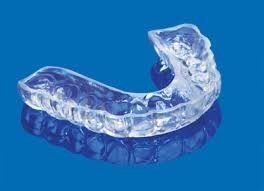Welcome Back! Last week we explained the signs and symptoms of TMD
This week at Hartwell Dentistry we will be following on by discussing the causes of TMD and the treatment options available to you.
TMD are a group of complex problems of the jaw joint, muscles and bite. TMD are also sometimes referred to as myofascial pain dysfunction. Because muscles, joints and teeth work together, a problem with either one can lead to stiffness, headaches, ear pain, bite problems (malocclusion), clicking sounds, or locked jaws.
The following are behaviors or conditions that can lead to TMJ disorders.
- Teeth grinding and teeth clenching increase the wear and stress on the disc of the TMJ, muscles and teeth. Those who grind or clench their teeth may be unaware of this behavior unless they are told by someone observing this pattern while sleeping or by a dental professional noticing telltale signs of jaw and muscle pain or wear on the teeth. Many patients awaken in the morning with a tight or painful jaw.
- Misalignment of the teeth and jaws causing lack of harmony and balance in function (malocclusion). Patients may complain that it is difficult to find a comfortable bite or that the way their teeth fit together has changed. Missing teeth also have an effect on the evenness of the jaw relationship leading to unequal distribution of forces.
- Stress frequently leads to unreleased nervous energy. It is very common for people under stress to release this nervous energy by both consciously or unconsciously grinding and clenching their teeth.
- Habitual chewing of gum or biting into objects like ice. Chewing on only one side of the jaw can lead to or be a result of TMJ problems.
- Trauma to the jaws: Previous fracture, injury in the jaw or facial bones can lead to jaw issues.
- Prolonged or traumatic dental procedures such as wisdom teeth removal
- Head, neck and postural problems can also lead to referred pain in the TMJ area
- Systemic conditions affecting overall health such as arthritis and developmental disturbances to name a few.
As can be appreciated the cause of TMD is both varied and complex and requires detailed examination and diagnosis before deciding on appropriate action.
Next time we will discuss the ways that TMD can be investigated and diagnosed

